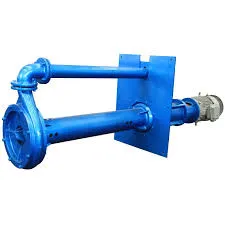English
- Afrikaans
- Albanian
- Amharic
- Arabic
- Armenian
- Azerbaijani
- Basque
- Belarusian
- Bengali
- Bosnian
- Bulgarian
- Catalan
- Cebuano
- Corsican
- Croatian
- Czech
- Danish
- Dutch
- English
- Esperanto
- Estonian
- Finnish
- French
- Frisian
- Galician
- Georgian
- German
- Greek
- Gujarati
- Haitian Creole
- hausa
- hawaiian
- Hebrew
- Hindi
- Miao
- Hungarian
- Icelandic
- igbo
- Indonesian
- irish
- Italian
- Japanese
- Javanese
- Kannada
- kazakh
- Khmer
- Rwandese
- Korean
- Kurdish
- Kyrgyz
- Lao
- Latin
- Latvian
- Lithuanian
- Luxembourgish
- Macedonian
- Malgashi
- Malay
- Malayalam
- Maltese
- Maori
- Marathi
- Mongolian
- Myanmar
- Nepali
- Norwegian
- Norwegian
- Occitan
- Pashto
- Persian
- Polish
- Portuguese
- Punjabi
- Romanian
- Russian
- Samoan
- Scottish Gaelic
- Serbian
- Sesotho
- Shona
- Sindhi
- Sinhala
- Slovak
- Slovenian
- Somali
- Spanish
- Sundanese
- Swahili
- Swedish
- Tagalog
- Tajik
- Tamil
- Tatar
- Telugu
- Thai
- Turkish
- Turkmen
- Ukrainian
- Urdu
- Uighur
- Uzbek
- Vietnamese
- Welsh
- Bantu
- Yiddish
- Yoruba
- Zulu
Telephone: +86 13120555503
Email: frank@cypump.com
Nov . 10, 2024 05:29 Back to list
Efficient Solutions for Pumping and Maintaining Septic Systems for Homeowners
Understanding Pump Septic Systems Essential Information for Homeowners
When it comes to managing household waste, many homeowners choose septic systems as an alternative to municipal sewage treatment. One critical component of these systems is the pump, which ensures the effective movement of wastewater. This article explores the functioning, maintenance, and importance of pump septic systems, offering vital information for homeowners who rely on them.
A septic system consists of a tank and drain field, designed to treat wastewater from toilets, sinks, and showers. The tank collects solids and allows liquid waste to flow into the drain field for natural filtration. However, in certain situations such as when the drain field is located uphill from the septic tank or the soil is not permeable, a pump is required to lift the wastewater and facilitate its movement through the system.
The pump in a septic system can be classified into two main types effluent pumps and grinder pumps. Effluent pumps are utilized to transport liquid waste from the septic tank to the drain field. They are typically used in conventional septic systems with gravity-fed drainage. Grinder pumps, on the other hand, are designed to break down solid waste into smaller particles, enabling them to be easily moved through the plumbing system. Grinder pumps are often necessary in basement installations or properties with low elevation where gravity flow is not feasible.
Routine maintenance is critical to the longevity and effective operation of a pump septic system. Homeowners should schedule regular inspections, ideally once a year, to ensure that all components are functioning properly. During these inspections, a professional septic service technician will check the pump, tank, and drain field for signs of wear or clogs. Regular pumping of the septic tank—typically every three to five years—is also essential to remove accumulated solids and prevent them from entering the pump, which can lead to failure.
pump septic

One of the most common issues with pump septic systems is pump failure, which can lead to serious problems such as backups or overflows
. Signs that your pump may be failing include unusual noises, slow draining fixtures, or gurgling sounds in the plumbing system. If a problem is suspected, it is crucial to contact a qualified septic service promptly. Ignoring these warning signs can result in costly repairs and potential health hazards due to untreated wastewater.In addition to routine maintenance, homeowners can take steps to protect their pump septic systems. Avoid flushing non-biodegradable materials, such as wipes, feminine hygiene products, or grease, down the toilet, as these can cause clogs and damage the pump. Furthermore, be mindful of the amount of water used during daily activities. Excessive water usage can overwhelm the system and affect its efficiency.
Educating oneself about the operational aspects of a pump septic system and adhering to maintenance schedules can lead to a hassle-free waste management experience. Homeowners should also be aware of their local regulations regarding septic systems and ensure compliance to avoid penalties.
In conclusion, understanding pump septic systems is crucial for homeowners who opt for this eco-friendly alternative to conventional sewage systems. By maintaining the pump, scheduling regular inspections, and practicing proper usage, homeowners can significantly extend the life of their septic systems while ensuring the safety and cleanliness of their environment. If you're considering installing a septic system or need guidance on maintaining your existing one, do not hesitate to consult with experienced professionals who can provide tailored advice and support.
-
Heavy-Duty Mining Sludge Pumps - Wear-Resistant Slurry Handling
NewsAug.02,2025
-
Horizontal Split Case Pump with GPT-4 Turbo | High Efficiency
NewsAug.01,2025
-
ISG Series Pipeline Pump - Chi Yuan Pumps | High Efficiency, Durable Design
NewsAug.01,2025
-
Advanced Flue Gas Desulfurization Pump with GPT-4 Turbo | Durable & Efficient
NewsJul.31,2025
-
ISG Series Vertical Pipeline Pump - Chi Yuan Pumps | Advanced Hydraulic Design&Durable Construction
NewsJul.31,2025
-
ISG Series Vertical Pipeline Pump - Chi Yuan Pumps | Energy Efficient & Low Noise
NewsJul.31,2025










